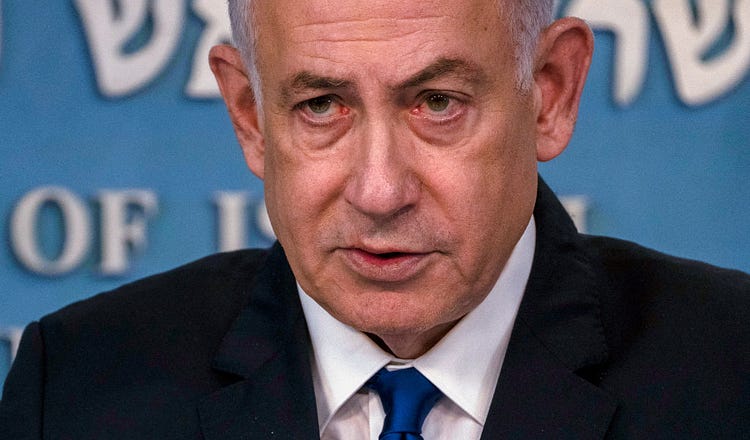
It has been nearly nine months since Hamas began its war against Israel. During this time, our prime minister has given almost no interviews to journalists from his country, limiting himself to the occasional exchange with a reporter from abroad or a local admirer. There are simply too many questions that Benjamin Netanyahu doesn’t want to answer. So I decided to interview a book he wrote—a memoir published a year before the war. I read it looking for insight into a leader whose approval rating hovers around 30 percent, but who believes, still, that he alone can save Israel.
It would be rare for an author to hope that as many people as possible never read their book. But this may well be true of Bibi: My Story. The memoir came out in the fall of 2022, a year before the Hamas onslaught of October 7. But it’s far more valuable now than it was at the time of publication.
Some dismiss any autobiography as calculated and self-serving, a genre likely to hide more than it tells. I tended to like my accounts “unauthorized” until a discerning reader convinced me that a person’s self-portrait is often deeply and unintentionally revealing for the same reason that a friend’s Instagram post can make us cringe: what you’re seeing may not be real, but it’s a real picture of the way an author wants to see themselves and be seen by others.
That desire, and the gap between that desire and reality, is one of the most intimate parts of who we are. A savvy writer armors up with self-awareness and humor, as Churchill did in My Early Life, making his egotism palatable and disarming to all but his most dour critics. Those tools are not available to Netanyahu. So as a portrait of the tragic figure at the helm in Israel, Bibi ends up being more telling than any expert analysis.
Netanyahu starts his story with his service in an elite commando unit 50 years ago, and with an account of his older brother Yoni, the hero who died commanding the famous Entebbe raid of 1976. Yoni’s figure looms over the younger Netanyahu from his earliest years, and the turning point in his life, he writes at the outset, is Yoni’s death: “I will tell you how Yoni’s sacrifice and example helped me overcome inconsolable grief, thrust me into a public battle against terrorism, and led me to become Israel’s longest-serving prime minister.”

